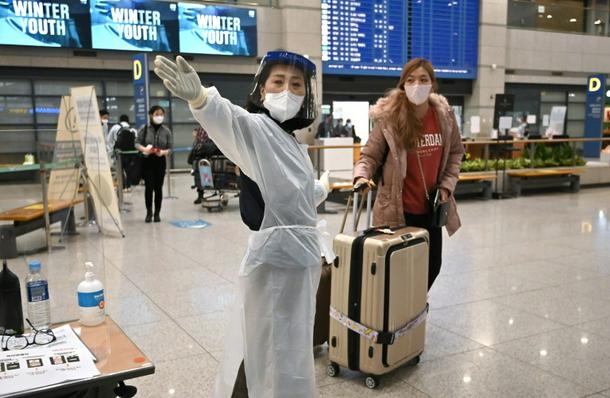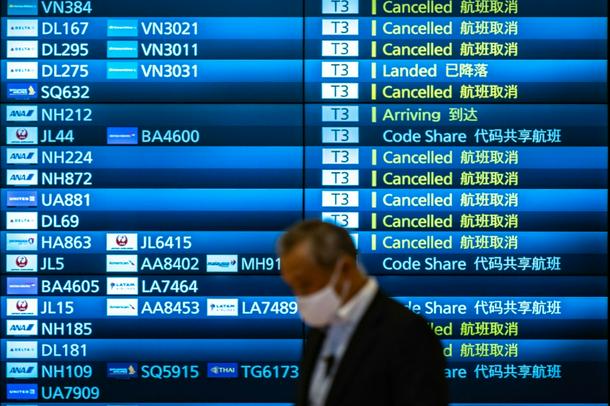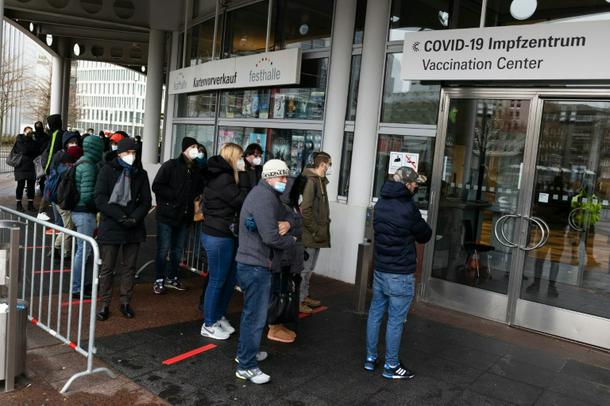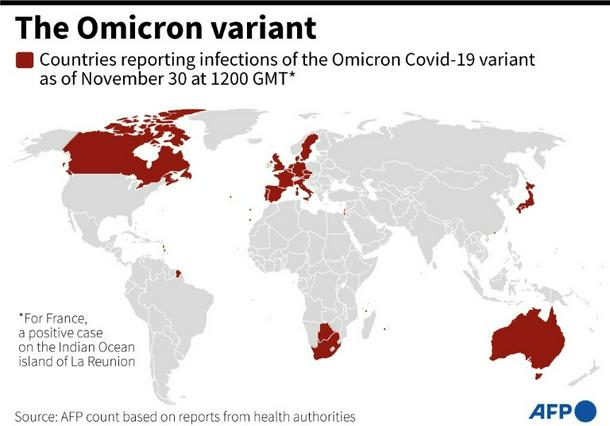
The first confirmed case of the Omicron variant was in South Africa on November 9, with infections spreading rapidly in the country
Geneva (AFP) - The WHO on Tuesday urged countries to remain calm and take “rational” measures against the fast-spreading Omicron coronavirus variant, warning that blanket travel bans being rolled out globally will not prevent its spread.
Omicron, first reported to the World Health Organization in South Africa less than a week ago, has already appeared in many countries, with borders shutting and dozens of governments imposing travel restrictions in defiance of WHO advice.
While so much is still unknown – no deaths have been reported from Omicron and it could take weeks to know how vaccine-resistant it could prove – the new strain highlights that the global fight against Covid-19 is far from over.
Germany’s incoming Chancellor Olaf Scholz on Tuesday voiced support for compulsory vaccinations and the UK ramped up booster jabs as even nations with high vaccination rates scramble to contain spiralling infections and prevent health services from being overwhelmed.
“We call on all member states to take rational, proportional risk-reduction measures,” WHO chief Tedros Adhanom Ghebreyesus said in a briefing to countries. “The global response must be calm, coordinated and coherent.”

Dozens of countries have announced travel restrictions against WHO advice
Tedros said it was understandable that countries wanted to protect their citizens “against a variant we don’t yet fully understand”, yet the UN health agency fears blocking travel could be unfair and dissuade surveillance.
“Blanket travel bans will not prevent the international spread, and they place a heavy burden on lives and livelihoods. In addition, they can adversely impact global health efforts during a pandemic by disincentivising countries to report and share epidemiological and sequencing data,” the WHO said in a travel advisory on Omicron.
Still, the global health agency urged the over-60s and the vulnerable to postpone travel plans.
Governments, particularly in western Europe, have reintroduced mandatory mask-wearing, social-distancing measures, curfews or lockdowns – leaving businesses fearing another grim Christmas.
- Germany crisis talks -

In Germany, the next chancellor Olaf Scholz indicated his support for compulsory Covid vaccines
In Germany Scholz announced parliament would vote on making Covid vaccines compulsory by the end of the year.
A source from Scholz’s centre-left Social Democratic Party told AFP he “signalled his sympathy for such a regulation” as Europe’s largest economy mulled new restrictions amid soaring coronavirus cases and hospitalisations.
The country’s constitutional court has ruled that sweeping restrictions such as curfews, school closures and contact restrictions were lawful, paving the way for further curbs.
French Health Minister Olivier Veran warned the situation was worsening rapidly after the first Omicron variant was found on France’s Indian Ocean island of Reunion, and with 1,700 Covid patients now in critical care.
With 47,000 new cases reported over the past 24 hours, he said average daily cases are rising 60 percent a week.
“If these trends continue, they could surpass the peak of the third wave by the end of this week,” he told lawmakers, referring to the surge in cases last spring.
In the Netherlands, health authorities revealed the Omicron variant had already entered the country before a cluster of cases emerged from two flights from South Africa.
Belgium and Germany have also reported finding Omicron cases before South Africa officially notified the WHO on November 24, while Japan confirmed its first case one day after barring all new foreign arrivals just weeks after relaxing tough regulations.
Asian, European and US markets fell, while the benchmark US oil price tumbled by more than five percent after the boss of US vaccine manufacturer Moderna warned existing jabs might be less effective against the new variant.
- ‘Not going to be good’ -

The Omicron variant
“All the scientists I’ve talked to … are like ‘this is not going to be good’,” Moderna boss Stephane Bancel told the Financial Times, warning against a “material drop” in the effectiveness of current jabs against Omicron.
Moderna, US drug maker Pfizer and the backers of Russian vaccine Sputnik V are already working on an Omicron-specific vaccine.
A panel of US health experts was meeting on Tuesday to decide on approving Merck’s anti-Covid pill, which is already authorised in Britain.
Scientists in South Africa said they had detected the new variant with at least 10 mutations, compared with three for Beta or two for Delta – the strain that hit the global recovery and sent millions worldwide back into lockdown.
China warned Omicron would cause challenges in hosting next February’s Winter Olympics in Beijing, with thousands of athletes, media and participants arriving from overseas required to enter a strict “closed-loop” bubble.
“But China has a lot of experience in responding to Covid-19,” foreign ministry spokesman Zhao Lijian said. “I firmly believe the Winter Olympics will be conducted smoothly.”
On Tuesday, Greece said coronavirus vaccines would be compulsory for over-60s, while Norway will offer booster shots to all adults before Easter, as preferable to lockdown.
Britain set a target of delivering third jabs to all adults within two months, with Prime Minister Boris Johnson saying vaccination centres would be “popping up like Christmas trees”, and neighbouring Ireland urged parents to reduce the indoor socialising of children under 12.
burs/imm/pbr